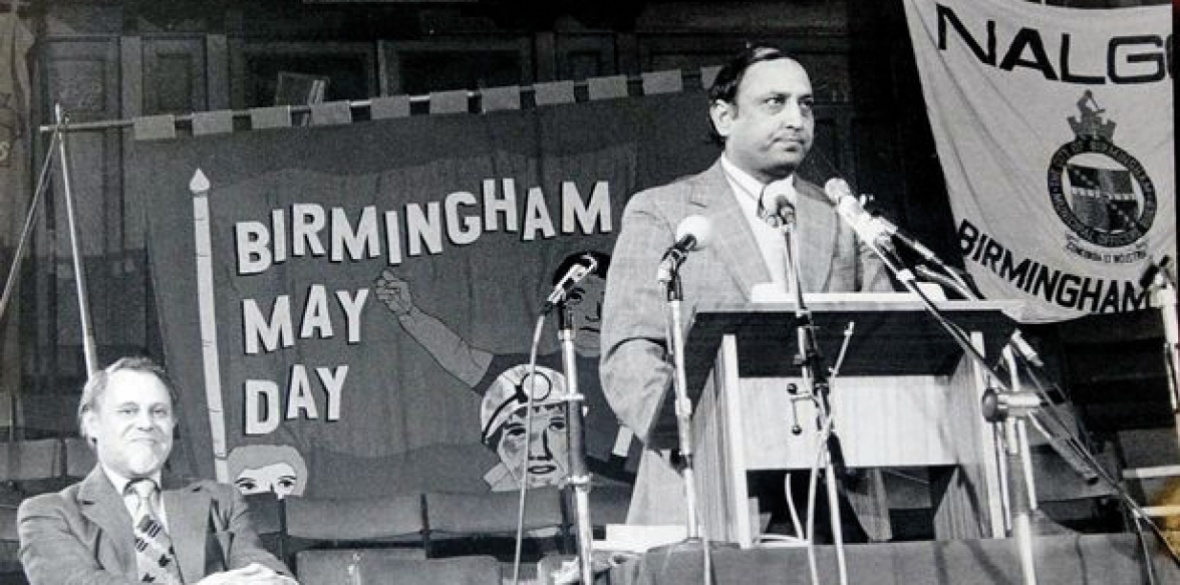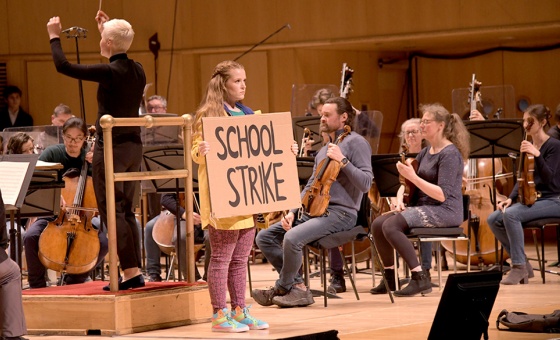This is the last article you can read this month
You can read more article this month
You can read more articles this month
Sorry your limit is up for this month
Reset on:
Please help support the Morning Star by subscribing here
ON Tuesday morning, October 10, a large and loud gathering of UCU strike pickets, outside South and City College Birmingham, stopped their singing, chanting, blowing of whistles and vuvuzela playing to observe a minute’s silence.
It was a fitting tribute to one of their members — Avtar Singh Jouhl, a trade union studies lecturer at that college in the 1980s and 1990s — who had died three days earlier.
Jouhl was born in the Indian Panjab in 1937 and came to the Black Country in the 1950s. He soon became central to the establishment of the Indian Workers’ Association (IWA) and to the unionisation, by the TGWU, of the foundry industry.
He was one of the leaders of the opposition to the colour bar in pubs and housing in the West Midlands which led to an invitation to Malcolm X to visit Marshall Street, Smethwick, in February 1965.
As IWA general secretary, Jouhl, with other IWA members, took Malcolm X to see the segregation in action at the Blue Gates pub.
This drew international attention to the situation in Smethwick, where the conservative MP had been elected on the slogan If you want a ni***r for a neighbour, vote Liberal or Labour,” and even the local Labour club operated a colour bar.
Malcolm X’s visit, now commemorated in a stained-glass window depicting him with Jouhl, was part of a rolling campaign for social justice in the 1960s.
The IWA allied with other immigrant workers’ associations, trade unions, progressive forces, socialists and anti-fascists such as Maurice Ludmer, editor of Searchlight, and BBC Radio balladeer Charles Parker.
Their persistent campaigning in groups such as Card (Campaign Against Racialist Discrimination) and Carl (Campaign Against Racialist Laws) eventually led to legislation to outlaw racial discrimination.
In 1978 Jouhl helped establish the Shaheed Udham Singh Welfare Centre in Handsworth, providing advice and support to all, regardless of race, sex, sexuality and caste.
Using a similar approach in the foundry industry, the IWA was very successful in bringing an end to race discrimination in the pay scales. Jouhl became a well-respected figure across the whole of the trade union movement.
At an earlier college picket line in the 1990s, a lorry driver was deliberating whether to cross; he saw Jouhl and said: “There’s no way I’m going to cross an Avtar Jouhl picket line!”
A secretly leaked memo from the blacklisting organisation, the Economic League, warned employers that Jouhl was “a dangerous person to have around.”
Jouhl was a Marxist who opposed all organisational sectarianism and threw the full support of the IWA behind united fronts such as the Anti-Nazi League (ANL) and the Campaign Against Racism and Fascism (Carf).
He also campaigned against the separatist movement to establish a Sikh state — Khalistan — in the Panjab. He organised conferences against any form of fundamentalism. He was overjoyed to see the massive movement of small farmers against the Indian government in 2021.
After almost 30 years in the foundry industry, following a successful interview, Jouhl was appointed by South Birmingham College as a trade union studies tutor at Birmingham Trade Union Studies Centre (BTUSC).
Hesitating to take up the offer, he only agreed after I (then head of BTUSC) had spoken at a mass meeting of about 200 workers in the shower area at Darcast foundry.
A vote was taken by show of hands and it was agreed overwhelmingly to let him leave to be a lecturer. I will never forget the tears on the faces of some of his workmates in leather aprons who came up to him to say goodbye and thank him for his years of service.
Soon after he arrived at BTUSC, he became involved in commissioning murals of working life and struggle, including — at the end of the canteen — one commemorating the closure of Saltley Gate in 1972, when thousands of engineers joined the miners on the picket line. He also organised conferences against “Fortress Europe.”
In the mid 1990s, Jouhl was elected to the NEC of the lecturers’ union, the National Association of Teachers in Further and Higher Education (NATFHE). As a NATFHE delegate to the TUC he successfully moved (against a general council recommendation to remit) the motion from NATFHE to establish the TUC black workers conference, national committee and associated equality structures.
Avtar’s energy and commitment was astonishing as can be seen by reference to his archive and the remarkable historical interviews conducted by his son.
Jouhl was a great encourager. He inspired both love and respect. Sitting with him once at a wedding reception, I remember scores of people coming up to greet him. He adored his three children (Jagwant, Paul and Mindi) and grandchildren.
He knew great sorrow with the tragic loss of his wife, Manjeet, when she was only 41. In recent weeks, many people have told me how Jouhl was such a good-humoured, compassionate, gentle man who always made time to listen to people or offer support and comfort when they were facing difficulty or tragedy in their lives.
There are many special people in the socialist and trade union movement but Jouhl was exceptional — a gigantic figure in the struggle to organise the unorganised and a formidable fighter against racism and for unity of all people.
We assured Jouhl, when he was in hospital, that we will always continue the fight for justice and equality that he championed all his life.











